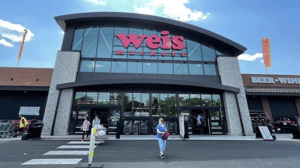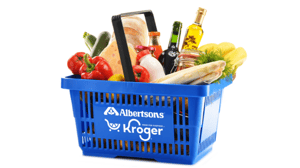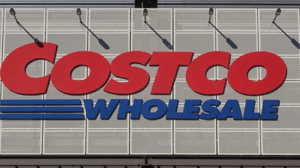A FLEETING IDEA
With pressure mounting every day to eliminate costs from the supply chain, a number of retailers are finding that a strong case can be made for outsourcing fleet management.Aging fleets, rising maintenance costs and a shortage of qualified drivers -- each of which can drive up costs in the supply chain -- are among the top reasons retailers are outsourcing all or part of fleet management to third
March 3, 1997
LINDA PURPURA
With pressure mounting every day to eliminate costs from the supply chain, a number of retailers are finding that a strong case can be made for outsourcing fleet management.
Aging fleets, rising maintenance costs and a shortage of qualified drivers -- each of which can drive up costs in the supply chain -- are among the top reasons retailers are outsourcing all or part of fleet management to third party providers, said retailers 'interviewed by SN.
Even many companies currently not outsourcing are seriously evaluating the option to better understand how costs of keeping operations in-house compare to contracting out.
Outsourcing part of transportation operations, such as by leasing equipment, or outsourcing the entire department with an integrated logistics solution, better positions retailers to focus on their core business.
One outsourcing firm said demand for its fully integrated logistics solutions rose 27% in 1996 compared to last year. Industry sources noted that fully integrated logistics solutions can cut as much as 10% off transportation costs.
Alan Smith, director of transportation at Randalls Food Markets, Houston, was drawn to outsourcing because of rising maintenance costs. The chain recently began leasing vehicles that deliver to its stores and contracted out for the maintenance as well.
"We looked at maintenance costs that have continually gotten greater each year and those kinds of things tend to happen without you realizing it unless you're paying attention to them," Smith said. "For us, trucks were getting older and it seemed more things were wrong with them more of the time."
Smith said 18 months ago Randalls owned 29 tractors, but those vehicles have now been replaced with 20 tractors that are leased. In addition, the 72 trailers, which were 42-, 45- and 48-foot, have been replaced with 54 larger trailers, measuring 53 feet.
These moves made the chain far more competitive than before, he said. Randalls reduced outbound trips by 15% because the larger trailers could hold more cargo. A $1,000 weekly savings was attributed to the use of fewer trailers.
Smith added for the quarter ended Oct. 19, 1996, labor and maintenance expenses, which include parts, was $10,000 less than the year before. Smith said the savings come largely from using less equipment, as well as getting better fuel mileage.
Waldbaum's, Central Islip, N.Y., a division of A&P, Montvale, N.J., has been leasing vehicles and has outsourced maintenance and drivers for its Central Islip warehouse to deliver meat, dairy and grocery for several years, said Bob Perfido, vice president of transportation. As a result, Waldbaum's saves 8% to 10%.
"The trucking company is allowed a specific amount of money to run with and they must come in under budget at all times," Perfido said. "They save us 8% to 10 % off their budget. However, issues do arise. For example, contracts come up midstream and you try to budget for it, but you can't tell what the negotiation is going to be and what the dollars are going to be."
The trucking company operates all of Waldbaum's fleet, which includes more than 300 trailers and 63 tractors. The 300 trailers are owned by Waldbaum's and the 63 tractors are owned by the third party.
The same third party handles the maintenance and has responsibility for 70 drivers, including meeting Department of Transportation regulations, which includes documenting drivers log hours.
Driver requirements and Department of Transportation requirements is part of what led Big Y Foods, Springfield, Mass., to outsource transportation for grocery and perishable loads and back hauls of its private-label bread program a few years back.
"It was difficult to fill our driver and Department of Transportation requirements," said George Newman, manager of distribution support, Big Y Foods. "Record keeping and liability insurance were also an issue. Now it's not a problem because the third party is responsible for them."
Fleming Cos., Oklahoma City, said its interest in outsourcing transportation stems from a re-engineering process it began a few years ago. While Fleming said it was very efficient and effective in fleet management prior to outsourcing, transportation is not its core business.
Fleming's most recent large conversion from in-house to outsourcing of transportation, including all labor and equipment, was at its North Carolina facility, which handles produce, dairy, meat, frozens, deli, bakery and grocery. This facility also cross docks health and beauty care and general merchandise.
The third party manages 120 drivers and 85 trucks.
"Third-party providers are specialists in this area. They bring a lot more to the party," said John Boultier, director of transportation. "By using them at certain facilities where it makes good business sense, we are operating more efficiently than we ever enjoyed."
Of its 42 facilities, Fleming also outsources all of its transportation in Memphis, Tenn.; Lubbock and El Paso, Texas; and Miami, which all handle full lines of food. Boultier noted that not all facilities are good candidates for outsourcing.
"We're also absolutely insulated from all of the regulatory controls and issues, and since that's the provider core business, they do a very good job of that," he added.
"The third party employs all the people, they own all the equipment and have full responsibility for all transportation requirements," said Boultier, "and we pay for that equipment based on the demands of our business.
"But in our business there are idle times when the equipment is not being utilized, so what the third party will do is go out and haul non-Fleming goods," he added.
"They could be hauling televisions, computer monitors, beer, other food goods or anything they can transport to utilize that piece of equipment since I'm already paying for the fixed cost of use that equipment. Then we work out a sharing arrangement based upon netting it down and we share in the dollars. I'm very pleased with this."
A somewhat similar arrangement is in place at a distribution center in Tracy, Calif., which Safeway, Pleasanton, Calif., turned over to an outsourcing firm, along with transportation operations, late last year. The third party plans to use the facility as a regional distribution center for some manufacturers, and if those parties are a big suppliers to Safeway, the retailer will save transportation costs.
In addition, because the Tracy facility is central to the main growing area for fruits and vegetables in California, the outsourcing company could consolidate product from different growers to service U.S. and Canadian grocers.
Some retailers turn to outsourcing to fill a specific need. Stop & Shop Cos., Quincy, Mass., for example, outsources 33 tractors at its Chicopee, Mass., facility and 55 tractors in North Haven, Conn., because neither location had enough equipment to sustain a garage. Both locations carry a full line of grocery product.
And Albertson's, Boise, Idaho, which maintains its own fleet, has outsourced particular loads to contract carriers from its Katy, Texas, facility.
"I think as companies start to evaluate their operations and look for options to make them more efficient and cost effective outsourcing is certainly an avenue that they will want to pursue," Boultier of Fleming said. "Is it for all companies? No. Is it for all operations? No."
About the Author
You May Also Like




